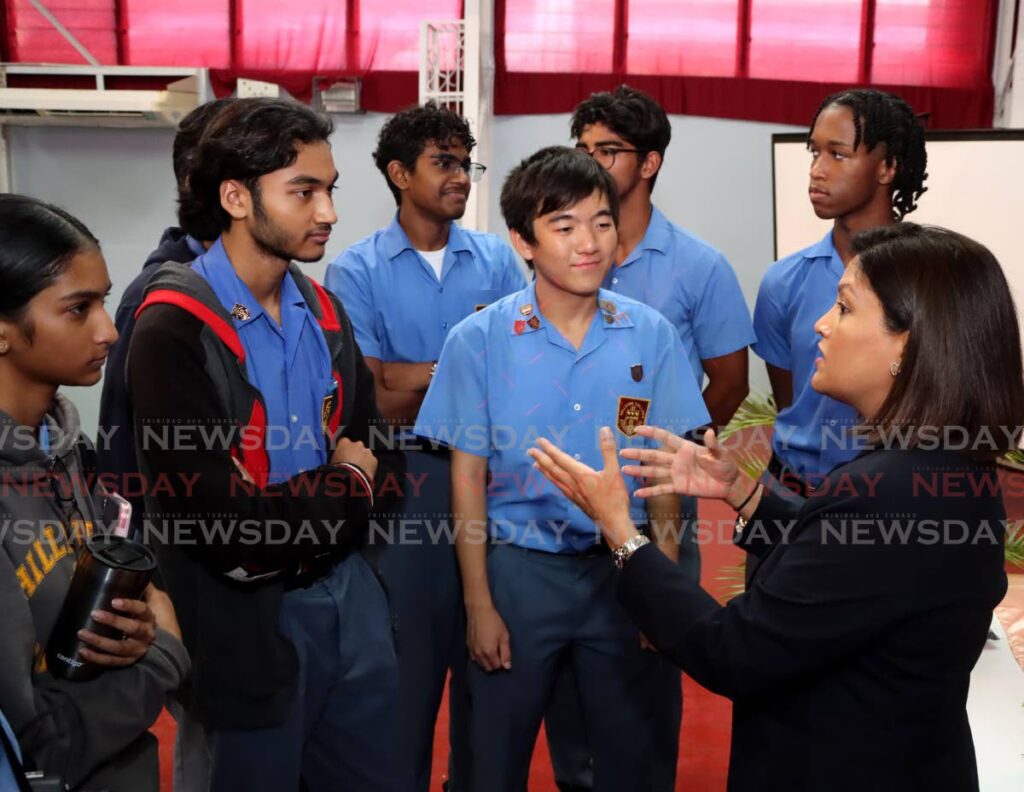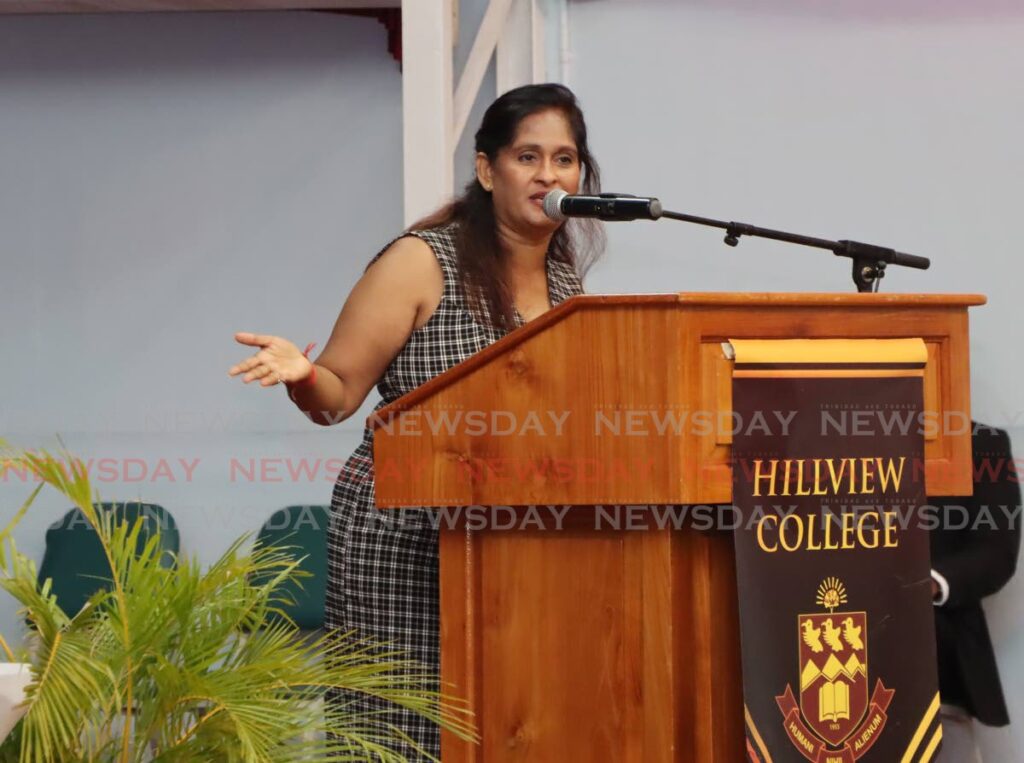Snap school poll: Youth want to leave Trinidad and Tobago

IN a school hall filled with 200 pupils, about half of them indicated they wished to leave Trinidad and Tobago to study, and of these only one said she would come back to TT afterwards.
These were the startling finding of an impromptu poll of pupils done by economist Dr Indera Sagewan on November 4 at Hillview College, El Dorado.
Economist Dr Marlene Attz, Barataria/San Juan MP Saddam Hosein and Patriotic Front leader Mickela Panday, along with Sagewan, gave brief presentations on the national budget and then answered pupils' questions.
The occasion was a post-budget panel discussion, chaired by journalist Akash Samaroo and staged by the education committee of the college's PTA.
Sagewan polled pupils present by a show of hands as to their desire to attend university abroad and then to return to TT.
Asking pupils to explain themselves, she then surmised crime, a declining economy and fears of joblessness were to blame for their wish to migrate.
Referring to the total budget spending of the two terms of Dr Keith Rowley's administration, she scoffed, "After $500 billion, we are spinning top in mud."
She said the Government advocated food security, yet allocated just $1.1 billion to agriculture.
"You have no money to grow the sector."
She also warned, "Most of the skilled people we trained in renewable energy are working outside of TT."
Sagewan said the Government had failed to use the budget to indicate where new jobs could be made or to diversify the economy.
"This budget is another $59 billion, but we are no closer to achieving sustainable development."
She advised the Government to seek foreign help to fix crime.
"Fifteen per cent of the budget has gone to national security, but where is crime?"
A pupil asked why she blamed youngsters for wishing to leave TT.
She replied she was not blaming them, as she herself had two youngsters studying abroad, amid concerns about crime and job prospects in TT.
Sagewan said TT's natural gas production was half of the 2011 volumes, saying the Government was hoping to access Venezuelan gas by 2027.
Attz remarked that diversification had some prerequisites, such as a capable workforce trained in the new sectors. "It is also a lack of political will.
"Because so much money is from oil and gas, it is a comfortable space for us."
She lamented an insufficient strategising for diversification.

Addressing the pupils, she said, "This budget and the decisions taken will affect you.
"I am looking to you to help take this country forward."
Sagewan lamented the country's notable growth in its non-energy sector had been in retail, so the only new jobs were for sales assistants in shops and malls. She said the growth that was desired was in areas such as the tourism, yachting and the agriculture sectors, but that has not happened.
Attz, in her presentation, said TT has a $7 billion food-import bill, which needed foreign exchange. She said more must be done for agriculture.
Based on pupils' show of hands, she lamented that out of all present, only one had said they wished to go into agriculture.
A young man asked her about the fact TT does not grow wheat, questioning any plans to reduce food imports.
She advocated cassava flour and breadfruit flour, saying much experimentation with these has been happening in the Eastern Caribbean.
A female pupil asked how to encourage more youngsters into agriculture. Attz replied that the Ministry of Youth Development offers programmes in agriculture, although she herself had some questions.
"What is the demand for these programmes? Are they targeting the right youth?"
"What is missing, in my humble view, is the strategy around agriculture," Attz said.
Panday, in her speech, told pupils the money in the budget belonged to the people, not the politicians, who were just managers of those resources.
A young man asked how to dissuade youngsters from emigrating.
Panday said, "One of the biggest problems TT has is the brain drain."
She said people are sold a dream but if you go abroad you see people struggling.
"It is expensive, difficult and lonely. It is not easy.
"Parents want them (their children) to go abroad because they want them to live."
She offered solutions.
"We have to deal with the crime situation. We have to provide opportunities."
Empathising with a pupil's concerns about a reduction in overtime earnings for police officers who were genuinely working, she lamented hearing that some officers had to buy their own handcuffs, while others languished in bulletproof vests that were ten years old.
On plans to buy new police cars, Panday charged, "You could buy as many new cars as you want; that is not stopping anything."
She advocated better crime prevention and detection measures instead.
Attz, in reply to issues raised by two pupils of St Augustine Girls' High School, said education was important, but what was the return on investment?
"Are we educating them for the present or the future?"
Hosein asked how many pupils read newspapers, and in reply not one hand was seen raised. He asked how many watched the news on television, incurring a fairly similar sign of lack of interest.
He urged youngsters to become aware of things, saying the youth unemployment rate was double the national rate (9.5 per cent and four per cent respectively). Hosein said many past scholarship winners were now sitting in ministries doing jobs not aligned to their training (pending brighter prospects.)
A young man asked why to stay in TT to set up a business without being able to access forex, when he could go to Guyana?
Hosein said the Government was trying to boost forex supplies by getting paid by oil and gas companies in US dollars.
"We have to look at ways to earn more US dollars.
"Why stay in TT? Because it is the most beautiful country in the world."

Comments
"Snap school poll: Youth want to leave Trinidad and Tobago"